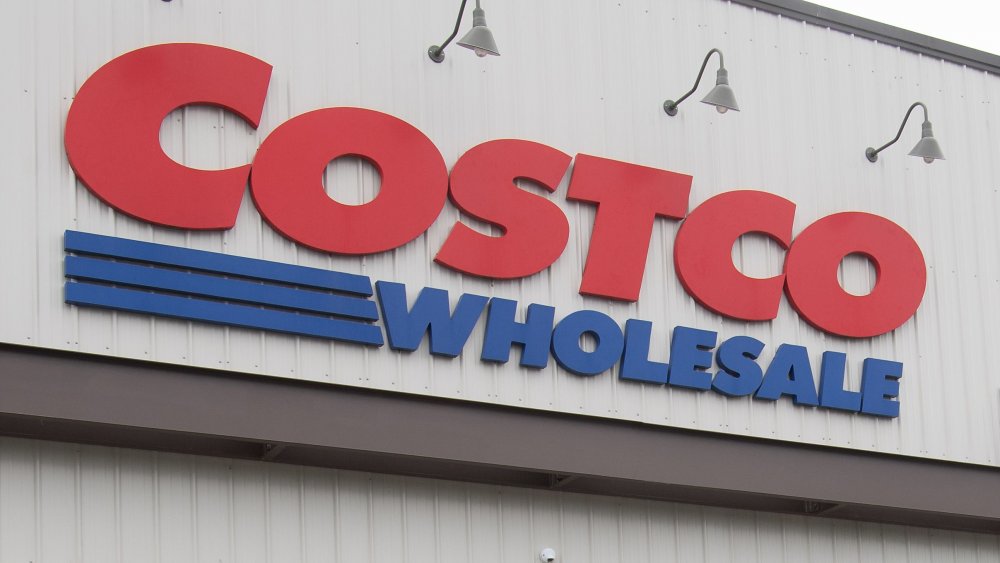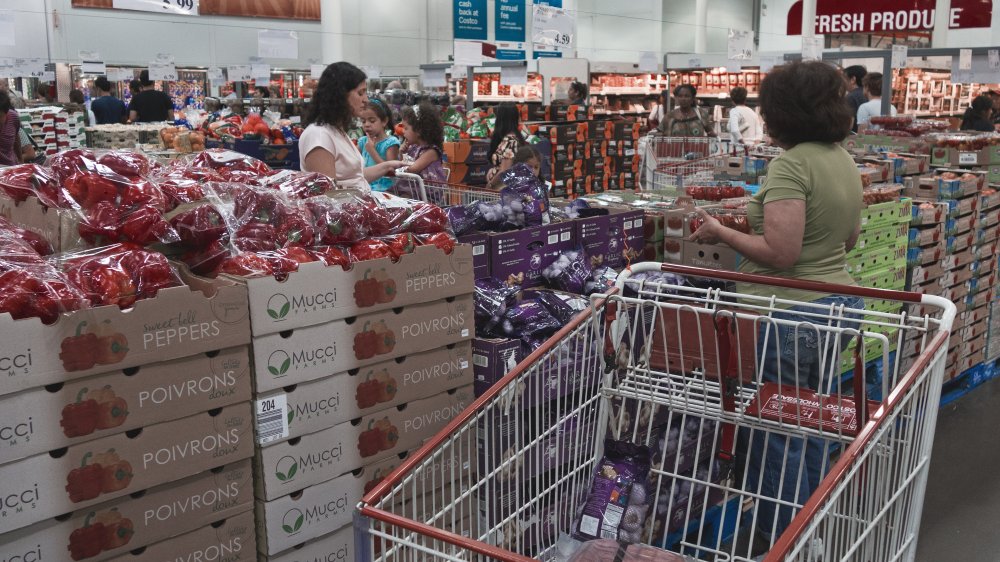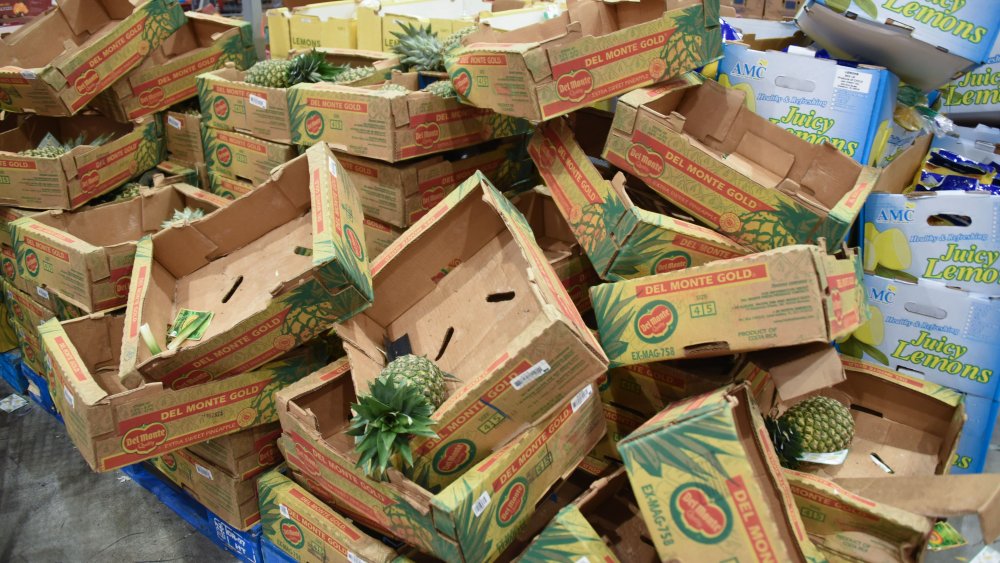Why You Should Never Buy Your Produce From Costco
It's difficult to not get excited when we shop at Costco, particularly when we're looking to buy enough to satisfy a household whose wants and needs are better met by bulk purchases. A visit to Costco means taking a field trip to a wholesale wonderland populated with quality supplies, including its exclusive Kirkland Signature brand, and which happens to cover a whole range of products from toiletries and household cleaners to food and quality alcoholic drinks.
There's no questioning the fact that Costco offers great deals on many of the things it sells, and as long as you're picking up items in bulk and with long shelf lives, the big box warehouse store is definitely the place to get those. But before you run around filling your cart with all things reasonably priced and wonderful, there are a few sections at Costco you're best looking at, but ultimately giving a hard pass — unless you've got plenty of people to feed.
One of those sections includes produce. Why is that?
Costco's produce comes in packages too big for a family to consume
Costco's fruit and vegetables come in quantities that would fill the hearts of anyone but the owner of a small restaurant or the head of a large family with dread — as with everything else the store sells, packages are meant for bulk purchase, which means you'll wind up with a lot of produce all at once.
Charlene Haugsven, who founded the site My Frugal Adventures, tells CNBC, "Just because Costco has it doesn't mean it's a bargain. A normal family is just never going to get through the quantity you have to purchase." And even if quantity isn't much of an issue, storage could be unless you have a surplus of cold storage units; and there is also the issue of shelf life, because most fruits and vegetables can only stick around and not be a danger to you for between five to seven days after purchase.
Wasted bulk produce buys can cost you more money in the long run
Because you can't store fresh fruits and vegetables indefinitely, chances are whatever it is you don't eat will end up in the trash — like 25 percent of all the produce we buy. The University of Arizona, whose researchers did a study on food waste, also estimates that the average American household throws out $590 worth of groceries a year.
"You should only purchase the quantity of food that you and your family can consume," Jeremy Kranowitz, executive director of Sustainable America told CheatSheet. "Purchasing a big sack of sweet potatoes rather than just a few individual ones may be less expensive on a per potato basis, but if you end up throwing out half of the sack, you are worse off economically." It might feel like the deal of a lifetime, but if you end up tossing that five-pound bargain bin of greens after just a salad or two, you're not saving money at all.


